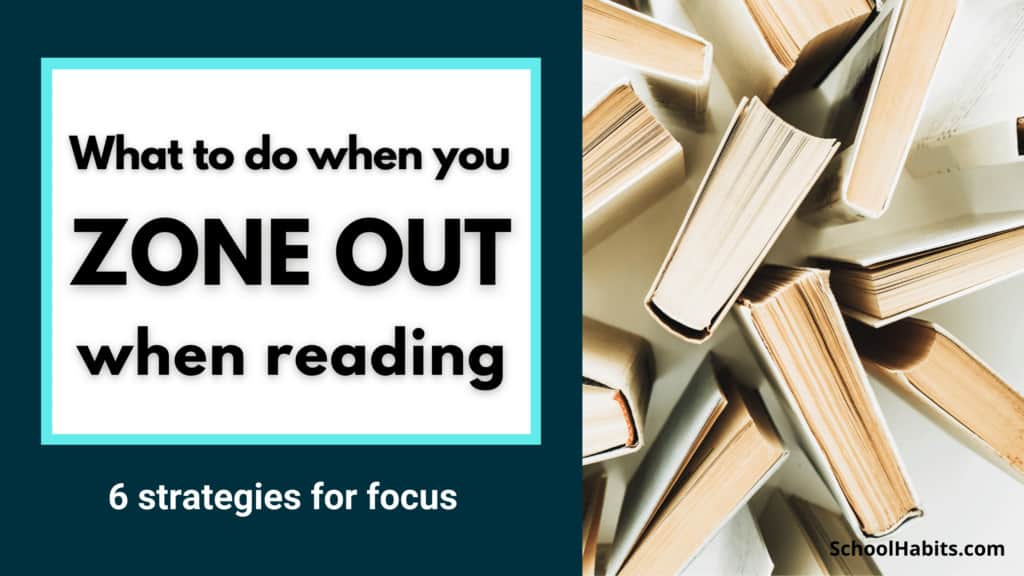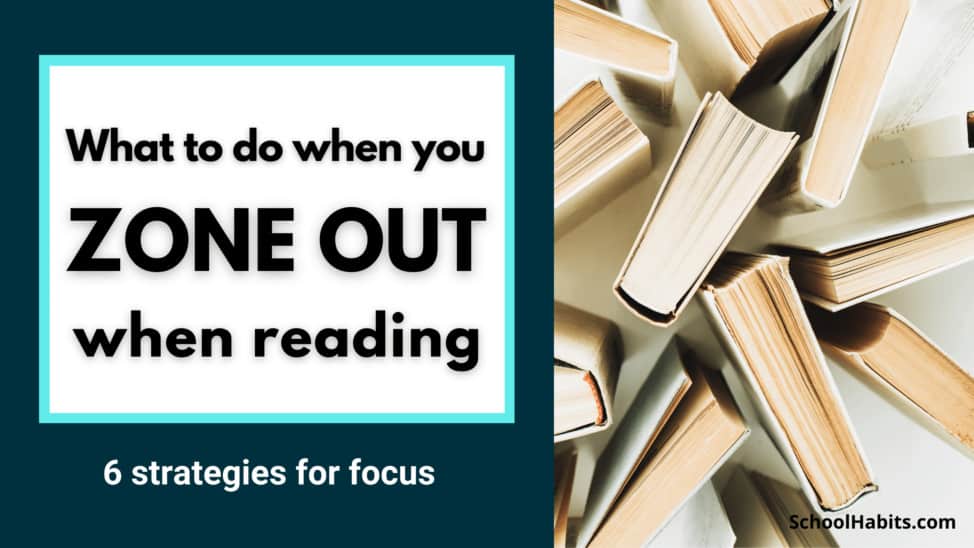
By Katie Azevedo, M.Ed.
I teach all things English, so of course I know how to not zone out while reading. But I still do it anyways. Even I, a reading “expert” will sometimes get to the end of a page and have no idea what I just read. I call this “fake reading syndrome” – when we fake ourselves out and think we’re reading when we’re not.
Although we all zone out once in a while, there’s actually something specific that “good readers” do when they zone out: they use fix-up strategies. Yup. Fix-up strategies. They’re an actual thing, and they work.
Most people keep reading when they zone out, praying hoping that at some point they will regain consciousness and somehow be able to follow along with the text again. But come on – this never happens, does it? Are you ever really able to recover after zoning out for more than a sentence or two? I’ll bet not.
So what do good readers do when they realize they’ve zoned out?
First, they recognize a zone-out the moment it happens. The ability to do this is called metacognition, and it’s an amazing thing. Metacognition is the process of thinking about thinking. If you have good metacognition skills, you will be able to catch yourself right when you’re beginning to zone out. This is important, because if you can’t even identify when you’ve zoned out, you won’t be able to move to the next step, which is to use fix-up strategies.
Fix-up strategies are basically a bunch of strategies that good readers use – sometimes without even knowing it – to repair their reading right after the “ahhh, I don’t get it” feeling hits.
Below are a few things you can do AFTER you realize you’ve fallen asleep with your eyes open when you were supposed to be reading.
Also, I have a whole video with some more strategies for avoiding zoning out while reading. You can check that out here.
How to NOT zone out while reading – and what to do when it’s too late
1. Reread the page. Sometimes we don’t even know when the zone-out began, so just go back and start at the top of the page to be safe.
2. Change something. When you go back to reread what you missed the first time, do something different, or else you’ll zone out again. Either change your position (stand instead of sit, etc.), or go to a different seat or room.
3. When you’re rereading, read two sentences at a time, and then stop. After every two sentences, take a second to confirm that you didn’t accidentally zone out again. Do this until you’re sure you’re okay.
4. Try reading aloud. You might feel silly, but it totally works.
5. Take notes in the margins or on sticky-notes. Depending on what type of text you’re reading, write down a thought or question after every paragraph. You could paraphrase what each paragraph is about, or you could just write a few words about it.
6. Let really difficult sentences go. The truth is that in most cases, we don’t need to understand every single sentence to get the gist of what we are reading. If you come to a sentence that you’ve already reread and you still swear it’s written in another language, move on and let it go.
You might find that you already do some of these strategies, in which case you have good metacognition skills. (Awesome. I love you.)
But if you’re reading these five tips and are thinking to yourself No way … it would take too long to do all that! then I feel ya and I get it…. you don’t want to do extra work when it’s hard enough to stay awake when reading the darn book…. right? But I promise you that even though these fix up strategies might take a second up front, they save you from reading the same darn page a bazillion times. And that alone makes these tips worth it.

